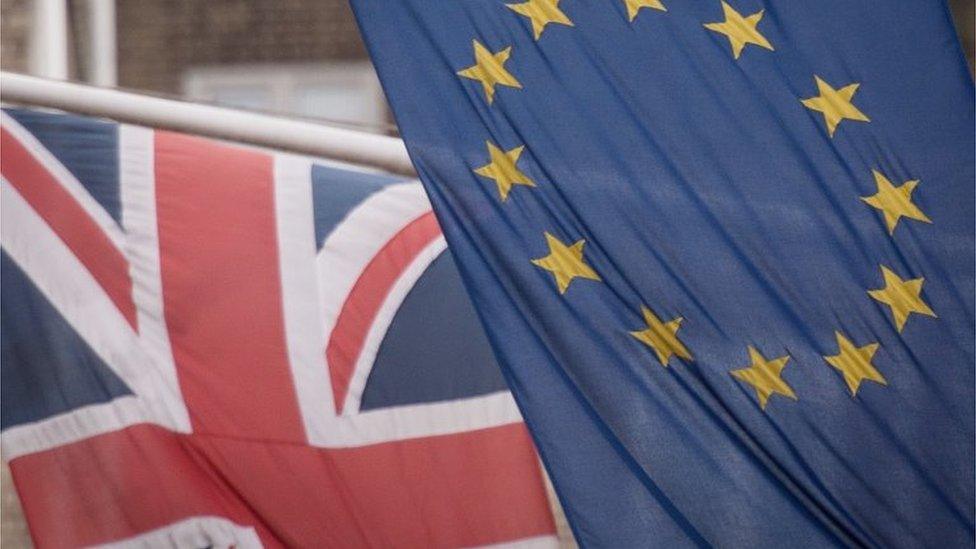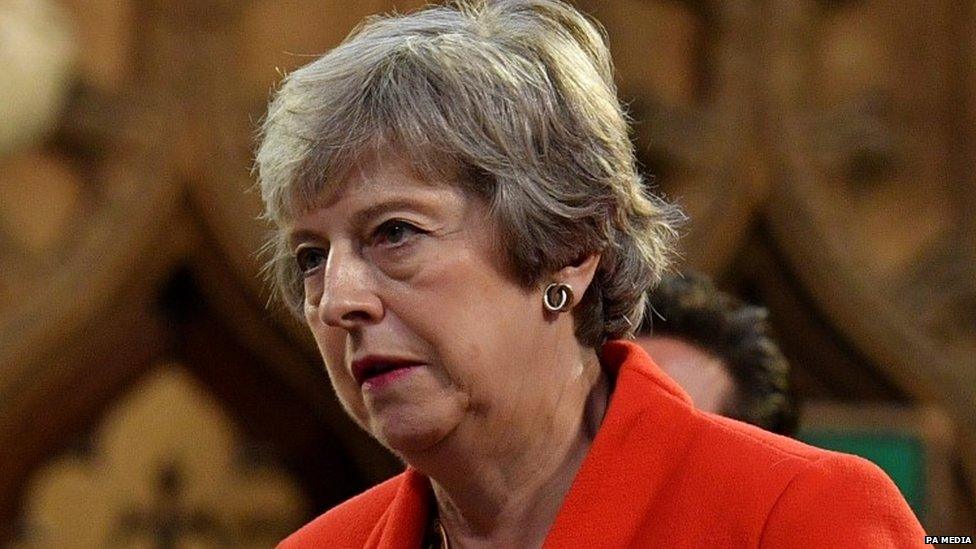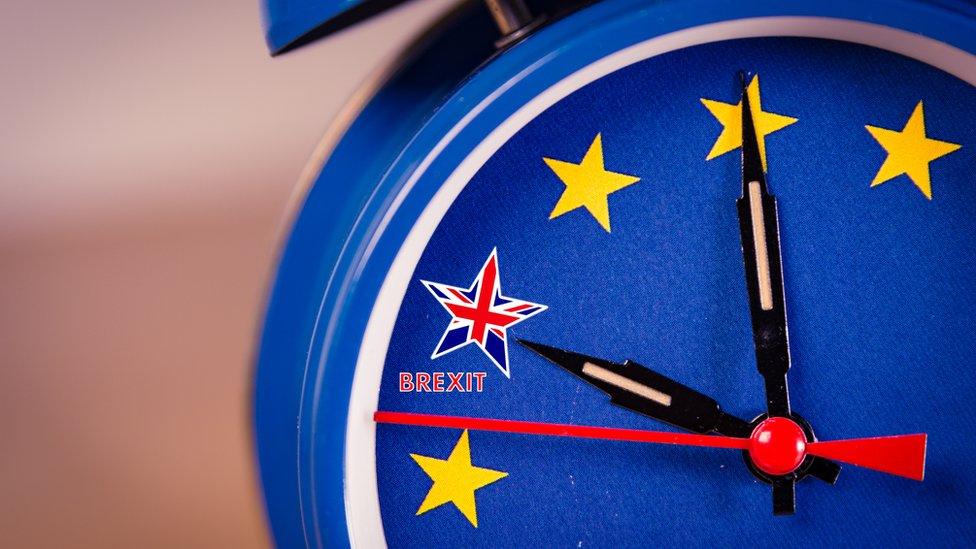Brexit: Government plan gets MPs' final backing
- Published
- comments

MPs have given their final backing to government plans to override parts of its Brexit agreement with the EU.
Amid concerns that the move would break international law, ministers agreed to give Parliament a say before ever using the powers they would be granted by the Internal Market Bill.
The legislation, which passed through the House of Commons by 340 votes to 256, will now go to the House of Lords.
The government says it will help protect the integrity of the UK.
But Labour, the Liberal Democrats, the SNP and the EU argue that - in allowing the government to undo parts of a treaty signed by the EU and UK - it could damage the country's international reputation and standing.
The UK's five living former prime ministers - Sir John Major, Tony Blair, Gordon Brown, David Cameron and Theresa May - have spoken out against the bill.
The parliamentary debate on Tuesday came as the EU and the UK began a ninth - and final - scheduled round of talks aimed at securing a trade deal.
The post-Brexit transition period - in which the UK has kept to EU trading rules and remained inside its customs union and single market - runs out at the end of the year.

Theresa May has said she cannot back the legislation
If the sides fail to reach a deal, the UK would trade with the EU after that on World Trade Organization rules.
This would mean tariffs on most goods which UK businesses send to the EU, while the UK could also apply tariffs to EU goods.
The Internal Market Bill is designed to enable goods and services to flow freely across England, Scotland, Wales and Northern Ireland after 1 January.
It gives the government the power to change aspects of the EU withdrawal agreement, a legally binding deal governing the terms of Brexit made earlier this year.

What is the Internal Market Bill?
The bill sets out rules for the operation of the UK internal market - trade between England, Scotland, Wales and Northern Ireland - after the end of the Brexit transition period in January.
It proposes:
No new checks on goods moving from Northern Ireland to Great Britain
Giving UK ministers powers to modify or "disapply" rules relating to the movement of goods that will come into force from 1 January if the UK and EU are unable to reach an alternative agreement through a trade deal
Powers to override previously agreed obligations on state aid - government support for businesses

Ministers say the bill would provide a "safety net" in case the EU interprets the agreement, in particular the section on Northern Ireland, in an "extreme and unreasonable" way. The section - known as the protocol - is designed to avoid a hard border on the island of Ireland.
Labour, the SNP and the Liberal Democrats opposed the bill, while the EU has asked the UK government to remove "contentious parts" of it by Wednesday.
In the Commons, Business Secretary Alok Sharma said the legislation would protect the "shared prosperity" of the UK's nations, adding: "It demonstrates that, as a union, our country is greater than the sum of its parts."
For Labour, shadow business secretary Ed Miliband said it was "unprecedented" to "break" a treaty signed by the UK and EU, and that the government's stance was being "noticed around the world".
Ian Blackford, the SNP's Westminster leader, said ministers had "typically and arrogantly ploughed on" despite opposition to the bill in the devolved nations.
The Democratic Unionist Party supported the government, which already has a Commons majority of almost 80.
No Conservative MPs voted against the bill at its final stage - and although 21, including Mrs May, did not vote this does not necessarily mean they abstained.
- Published25 September 2020
- Published26 January 2024

- Published1 July 2020
